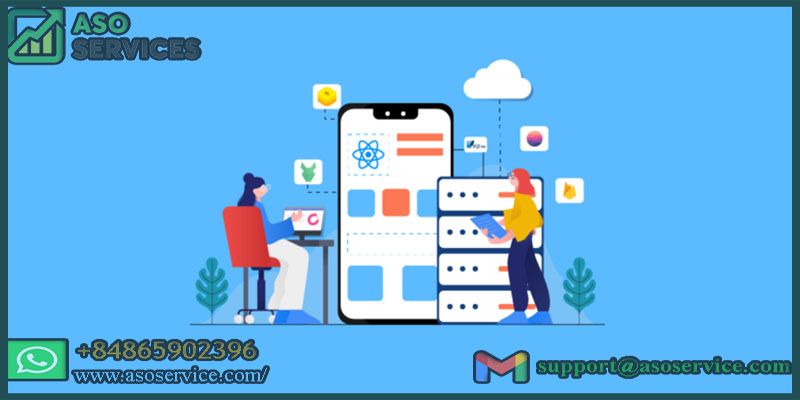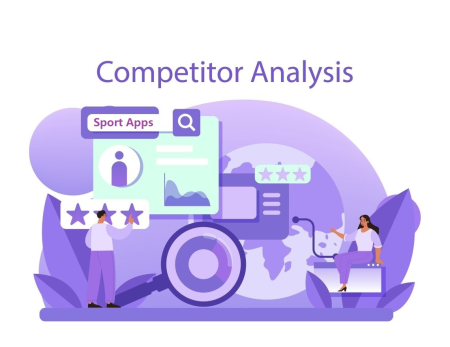Android is one of the most widely used operating systems globally, with over 3 billion active devices. As a result, the demand for Android app development has skyrocketed in recent years, and the competition in the market has become fierce. Building a successful Android app requires a combination of technical skills, creativity, and attention to detail. To create robust, high-performing Android applications, developers need to stay up-to-date with the latest technologies, tools, and best practices.
Related posts
Boost Your App's Success with These Top ASO Tools And Techniques
A Comprehensive Guide to Keyword Research For ASO
1. Understanding the Android platform
The Android platform is a powerful and versatile operating system that has revolutionized mobile device use. As a developer, understanding the Android platform is essential for building robust and efficient mobile applications.
Android Studio, the primary development environment for building Android apps, provides a comprehensive set of tools and features for app development. It includes a code editor, a visual layout editor, a debugger, and various performance analysis tools, making it easier for developers to build and test their apps. It's an important way to increase your app installs
In addition to Android Studio, many other development tools and frameworks are available for Android developers. Popular frameworks like Retrofit, Dagger, and RxJava help streamline app development and improve app performance.

Understanding the Android platform, Source: Asoservice.com
To build complex and robust apps, developers must also understand the different types of Android app components, including activities, services, broadcast receivers, and content providers. These components create seamless user experiences and provide access to devise features and data.
Understanding the Android platform is crucial for developing successful mobile applications. With a solid foundation of knowledge about the Android operating system, development tools, and application components, developers can create high-quality apps that deliver exceptional user experiences.
2. Designing user interfaces for Android apps
Designing a user interface (UI) for an Android app is critical to the app development process. The user interface is the first point of interaction between the user and the app, and a well-designed UI can significantly enhance the user experience.
To design a UI for an Android app, it's essential to understand the principles of Material Design, Google's design language for Android apps. Material Design emphasizes clean, modern design elements, bold typography, depth, and motion to create visual interest.
Using layout managers is crucial to create responsive and flexible UIs that work across different screen sizes and orientations. Android provides several layout managers, such as LinearLayout, RelativeLayout, and ConstraintLayout, each with unique features and advantages.
To design a user-friendly UI, it's essential to consider accessibility features, such as support for different languages, text sizes, and color contrasts. Providing accessible UIs ensures that all users, including those with disabilities, can use and enjoy the app.
In summary, designing a user interface for an Android app requires a deep understanding of Material Design principles, responsive layout managers, animations and transitions, and consideration for accessibility features. By focusing on these critical elements, developers can create Android apps with intuitive and engaging UIs that deliver exceptional user experiences.
3. Working with data in Android Development
Working with data is a crucial part of Android app development. From storing user preferences to retrieving data from remote servers; managing data is critical to building robust and efficient Android apps.
Android provides several options for storing data, depending on the use case and data size. Some of the most common data storage options in Android include:
Shared Preferences: Used to store small amounts of data, such as user preferences, settings, and application state.
SQLite: A lightweight and robust relational database management system that allows developers to store and manage structured data.
Content Providers: Used to manage shared data between applications, allowing data to be queried, modified, and shared across different apps.
File Storage: Used to store large files or data that doesn't require complex queries, such as images, audio, and video.
When working with data, it's also essential to consider data security and privacy. Android provides several features and APIs to ensure data privacy and security, such as encryption, permissions, and user authentication.
Overall, working with data in Android development requires a deep understanding of the various data storage options available, security and privacy considerations, and networking. By focusing on these critical elements, developers can build robust and efficient Android apps that provide exceptional user experiences.
4. Building and testing Android development
Building and testing Android apps is a crucial aspect of the app development process. It involves designing, coding, debugging, and optimizing apps to deliver exceptional user experiences.
To build Android apps, developers typically use Android Studio, Google's official Integrated Development Environment (IDE) for Android app development. You can use this way to increase App installs from Google ads.
The process of building an Android app involves several key steps, including:
Creating a project: Developers use Android Studio to create a new project and configure project settings, such as the minimum SDK version and the app's package name.
Designing the user interface: Developers use Android Studio's visual layout editor and layout managers to create responsive and intuitive user interfaces.
Writing code: Developers write code in Java or Kotlin to implement app logic, integrate APIs, and manage data.
Debugging and optimizing: Developers use Android Studio's debugging tools to identify and fix bugs and optimize app performance.
Once an Android app is built, it must be thoroughly tested to ensure it works as intended and delivers exceptional user experiences. Android provides several testing frameworks and tools, such as JUnit and Espresso, that help developers automate testing and ensure app quality.
Some of the most common types of tests for Android apps include:
Unit tests: Used to test individual code components, such as methods and functions.
Integration tests: Used to test how different app components interact.
Functional tests: Used to test how an app behaves from the user's perspective, focusing on user flows and app behavior.
Performance tests: Used to test app performance, such as how quickly the app loads and how it handles large data sets.
Overall, building and testing Android apps requires a deep understanding of the development tools and frameworks available; as well as testing best practices and app optimization techniques.
5. Optimizing app performance for Android Development
Optimizing app performance is a crucial aspect of Android app development. It involves identifying and addressing performance bottlenecks to ensure the app runs smoothly and delivers exceptional user experiences.
There are several key strategies and best practices that developers can follow to optimize ASO for app performance in Android, including:
Efficient memory management: Android apps must manage memory efficiently to ensure smooth performance and prevent crashes. Developers can use tools like Android Profiler and Heap Viewer to identify memory leaks and optimize memory usage.
Multithreading: Multithreading enables apps to perform complex tasks without affecting app responsiveness. Developers can use techniques like AsyncTask and Handler to execute tasks in the background and improve app performance.
Optimizing user interface: The user interface can also impact app performance, especially on devices with low processing power. Developers can optimize the user interface by reducing layout hierarchy, using efficient layout managers, and using vector graphics instead of bitmap images.
Testing and profiling: Testing and profiling are critical for identifying and addressing performance bottlenecks in Android apps. Developers can use tools like Android Profiler, Traceview, and Systrace to identify performance issues and optimize app performance.
Optimizing app performance is essential for delivering high-quality Android apps with exceptional user experiences. By following these best practices and using the available tools and frameworks; developers can identify and address performance bottlenecks and ensure that their apps run smoothly and efficiently on various devices.
6. Publishing your app on the Google Play Store
Publishing your app on the Google Play Store is an essential step in getting your app into the hands of users. The Google Play Store is the largest app store for Android; with millions of active users and a wide range of distribution options.
To publish your app on the Google Play Store, you need to follow these basic steps:
Create a Google Play Console account: The Google Play Console is a web-based tool allowing you to manage; and publish your Android apps on the Play Store. You must create a Google Play Console account; and pay a one-time registration fee of $25 to access the platform.
Prepare your app for release: Before publishing your app on the Google Play Store; you need to ensure that it meets the requirements, such as targeting a compatible Android version; complying with Google Play policies, and providing high-quality content and user experiences.
Build and sign your app: To publish it on the Google Play Store, you must build an APK (Android Package) file and sign it with a digital certificate. This ensures your app is secure and can be installed on users' devices.
Publish your app: After uploading it, you must review and publish it on the Google Play Store. Google Play Console provides various tools and features to help you manage your app's listing, track user feedback, and analyze app performance.
Maintain and update your app: Once it is published on the Google Play Store, you must maintain and update it regularly to ensure that it meets users' expectations; and stays competitive in the market. You can use the Google Play Console to monitor app performance, receive user feedback, and release updates to improve your app over time.
Overall, publishing your app on the Google Play Store requires careful planning and execution to ensure that your app meets users' expectations and stands out in a crowded market.
Conclusion
In conclusion, mastering Android development requires combining technical skills, best practices, and attention to user needs and expectations. Following these tips and tricks for building robust apps, developers can create high-quality Android apps that provide exceptional user experiences, meet business goals, and stay competitive in a rapidly evolving market.
Related posts
https://asoservice.com/increase-app-installs-from-google-ads
https://asoservice.com/google-reviews
Thanks so much for reading this article.
Source: https://asoservice.com/














Leave a Reply
Your e-mail address will not be published. Required fields are marked *